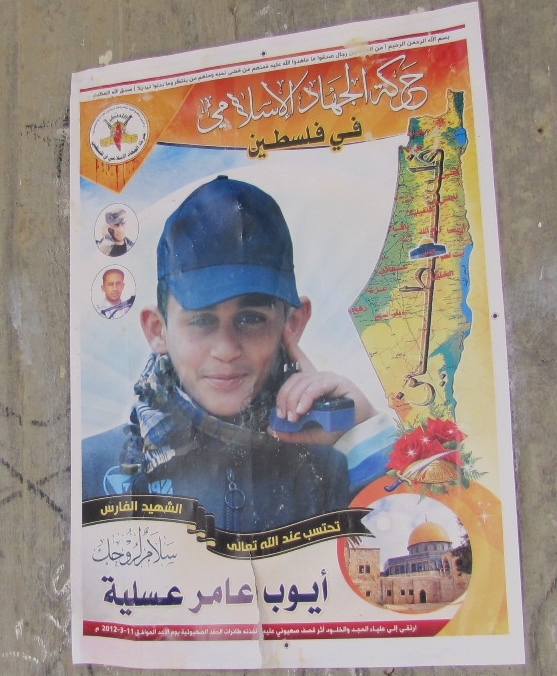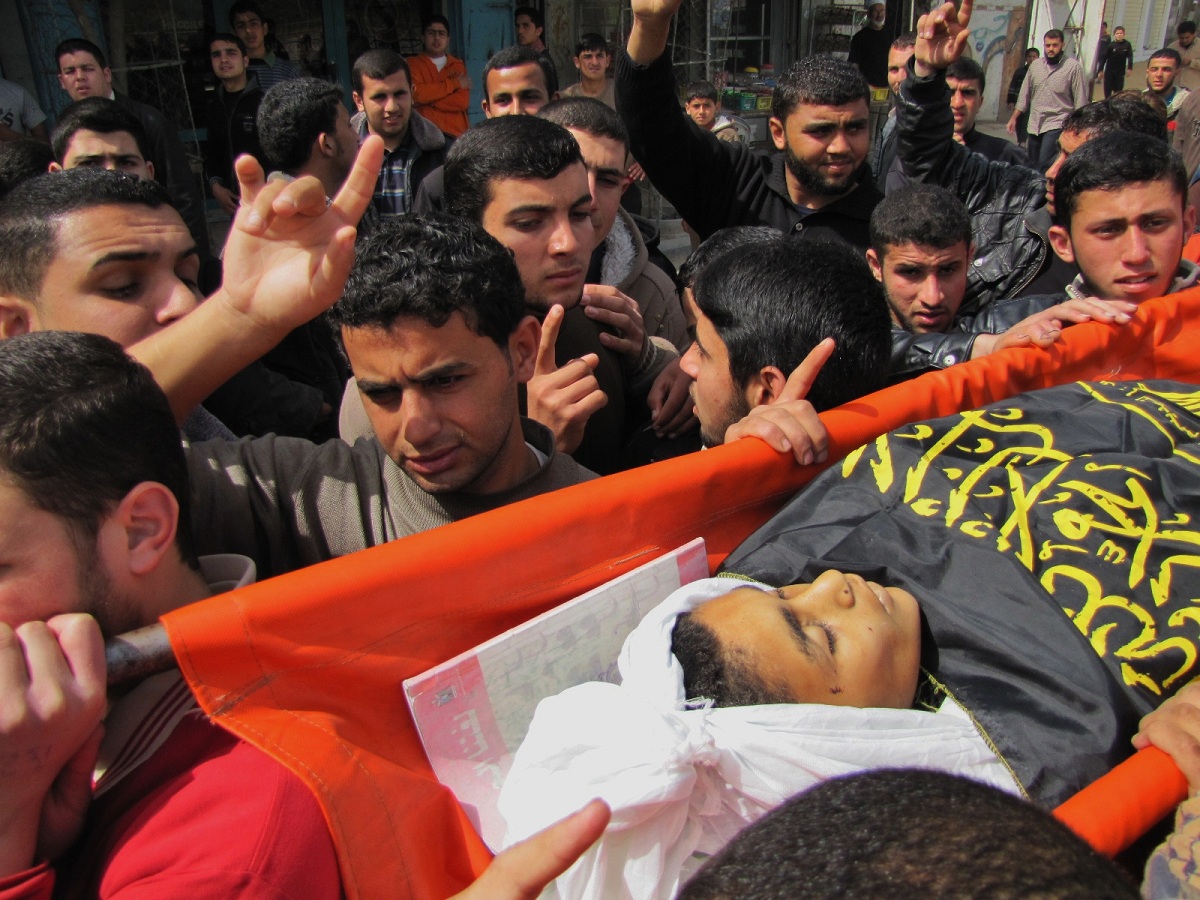Tag: Ayoub Assalya
-
His story told by his mother: Ayoub Asalya, 12 years old, killed by an Israeli missile
by Rosa Schiano 19 March 2012 | il Blog di Oliva Ayoub Asalya, 12, was going to school on Sunday morning when he was killed by an Israeli missile. On the walls of his house there is a poster with his image. Ayoub is shown smiling with a cap on his head. “The nights before he…
-
Burying Ayoub
by Nathan Stuckey 11 March 2012 | International Solidarity Movement, Gaza Twelve year old Ayoub Assalya was murdered today. He was walking to school when an Israeli missile landed next to him. It was seven A.M. He is another casualty of Israel’s latest attack on Gaza. For three days now Gaza has been under bombardment. …


